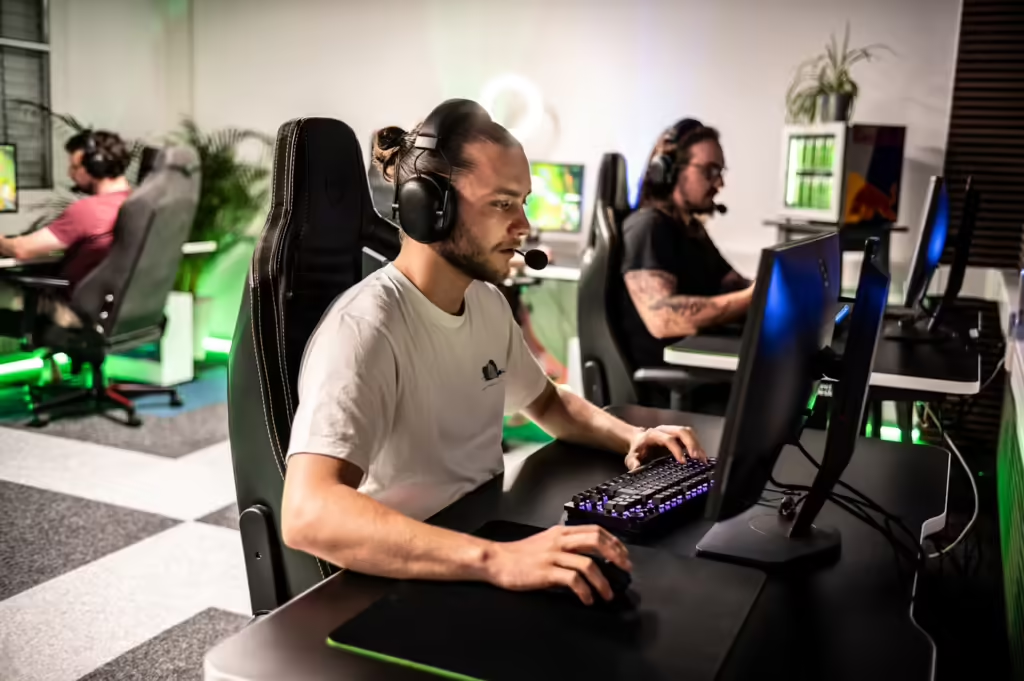Online poker is booming in 2024, with the global online poker industry valued at $3.86 billion. Projections estimate it will surge to $6.90 billion by 2030, growing at an annual rate of 10.2%. This explosive rise isn’t solely tied to better platforms or immersive VR updates; it’s about how poker is integrating itself into the broader digital gaming culture. In fact, many of the industry’s most exciting developments are rooted in strategic collaborations with esports organizations.
For poker operators looking to court Gen Z and Millennials, esports is the blueprint. Like online poker, esports thrives on skill, strategy, and scalable digital infrastructure. But what truly bridges the gap is the blurring of culture, competition, and community between the two. Both are moving toward hybrid formats: with live-streamed events, social interactivity, and influencer-driven engagement, all of which are redefining what it means to be a “gamer” or a “player.” Let’s dive into the core commonalities that make esports and online poker such natural allies, and how their crossover is reshaping both industries.
High-Stakes Competition and the Psychology of “Tilt”
At their core, esports and online poker are fiercely competitive mental battlegrounds. Both require sharp decision-making, adaptability under pressure, and (perhaps most importantly) emotional discipline. One shared concept that illustrates this connection is “tilt.” Originally coined in poker, tilt describes a state of emotional frustration that leads to irrational, subpar decisions. In poker, tilt might mean chasing losses with reckless bluffs; in esports, it could manifest as aggressive, poorly calculated plays after a losing streak. A 2024 study in the esports domain defines tilt as “a state of indignation and frustration resulting in inhibited decision-making,” a clear parallel to its poker roots.
Why is tilt such a central theme? Because both poker and esports players face millions of dollars in prize money, and the pressure that comes with it. As Jaemie Gamboaland explains in our recent article on Top Tournaments and Record Payouts for esports, the 2024 League of Legends World Championship boasts a $20 million prize pool. This draws comparisons to the World Series of Poker, also featuring multimillion-dollar pots. These stakes demand peak mental focus, and mastering tilt has become a cornerstone of training for top competitors in both scenes. The psychological toll, once thought unique to poker, is now recognized across competitive gaming. Coaches and performance psychologists are borrowing concepts from poker to enhance esports training. In turn, poker platforms are adopting real-time analytics and coaching tools similar to those in esports to help players improve under pressure.
Live Streams, Interaction, and the Power of Community
Another major crossover is the interactive and social nature of gameplay. While both esports and poker were once seen as solitary pursuits, today’s platforms are built around community and connection. Just look at Americas Cardroom, one of the top sites for online poker in America. They have a number of regular tournaments that keep the community active, and also host events like the Pro and Ambassador Meet-Up Game. Through these efforts, the platform mimics the spirit of esports by streaming live cash games and encouraging direct interaction between fans and pros.
During these events, poker icons like Chris Moneymaker and Ebony Kenney sit at custom tables where anyone—regardless of bankroll—can join in, chat live, and play against the best. This is reminiscent of how esports streamers on Twitch or YouTube Gaming build cult followings by interacting with viewers in real time. The game is one thing; the experience, the banter, the shared highs and lows of competitive play are all other critical parts of these games. These events are also designed for content creation. Just like esports tournaments generate endless hours of highlights, strategy breakdowns, and meme-worthy moments, online poker meet-ups are becoming streaming gold. Americas Cardroom is delivering a show, and its strategy clearly mirrors what’s been working in esports for years.
Brand Collaborations and the Future of Cross-Promotion
Perhaps the clearest signal of the growing bond between esports and online poker is the rise in high-profile partnerships. One standout example is the collaboration between PokerStars and Brazilian esports powerhouse FURIA. In this partnership, FURIA’s pro gamers are challenged to learn and play poker, while PokerStars gets exposure to a young, digitally native audience that already understands competition, risk management, and strategic thinking. The campaign is a case study in how both industries share skill sets and story arcs. “With so many transferable skills, relatable journeys and challenges, and a keen sense of community across both poker and esports, the partnership is a perfect fit for both brands,” said PokerStars during the announcement.
Indeed, both poker players and esports athletes build careers through grinding tournaments, analyzing past performances, and learning from defeats. They often start as amateurs and grow through online communities, before breaking into the big leagues. For fans, the transition between esports and poker doesn’t feel jarring; rather, it feels natural. And from a marketing perspective, poker operators are increasingly leveraging esports’ streaming infrastructure, influencer model, and immersive technologies to stay relevant. With platforms exploring AR overlays, VR environments, and cloud-based scalability, the future of poker looks a lot like the evolution of esports over the last decade.
What began as two distinct worlds — one built on cards, the other on keyboards — has evolved into a shared digital ecosystem where poker and esports are more alike than ever. They attract similar audiences, share competitive dynamics, and increasingly adopt each other’s technology, structure, and style. For poker platforms trying to capture a new generation of players, looking to esports is a necessary, long-term fusion of cultures and communities. The line between esports and online poker is fading fast, and in that blur, a new frontier of competitive entertainment is being born.




